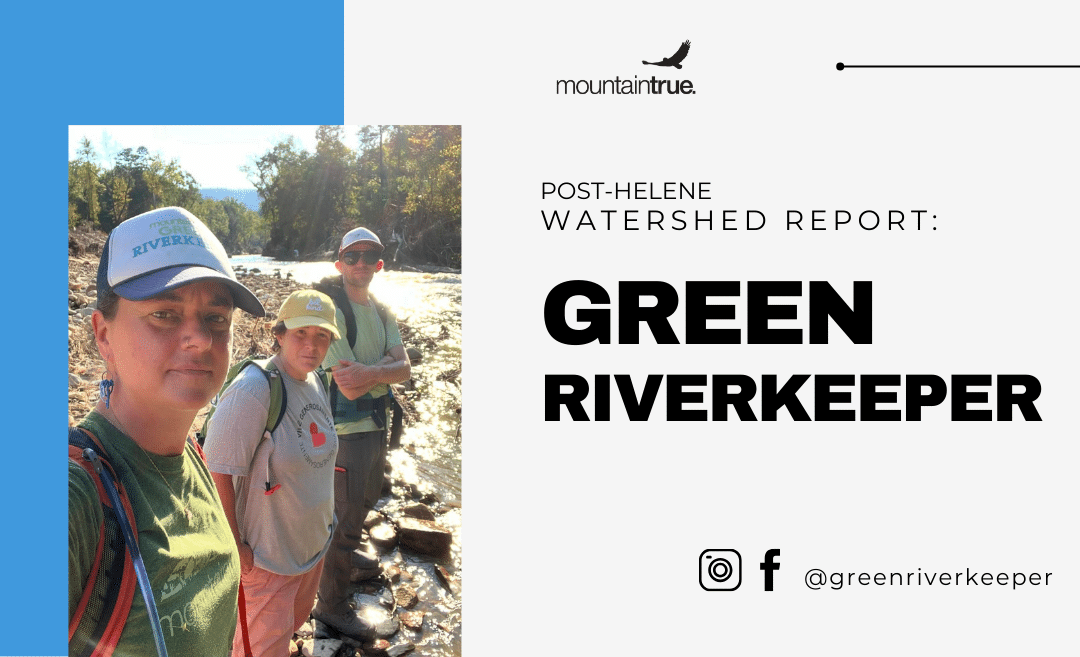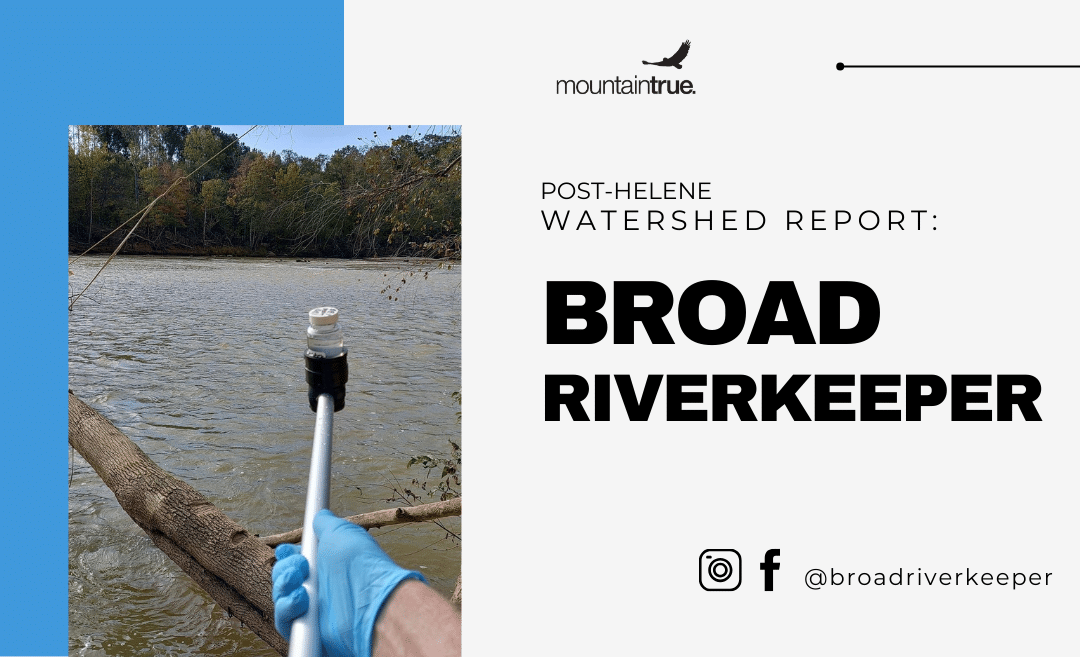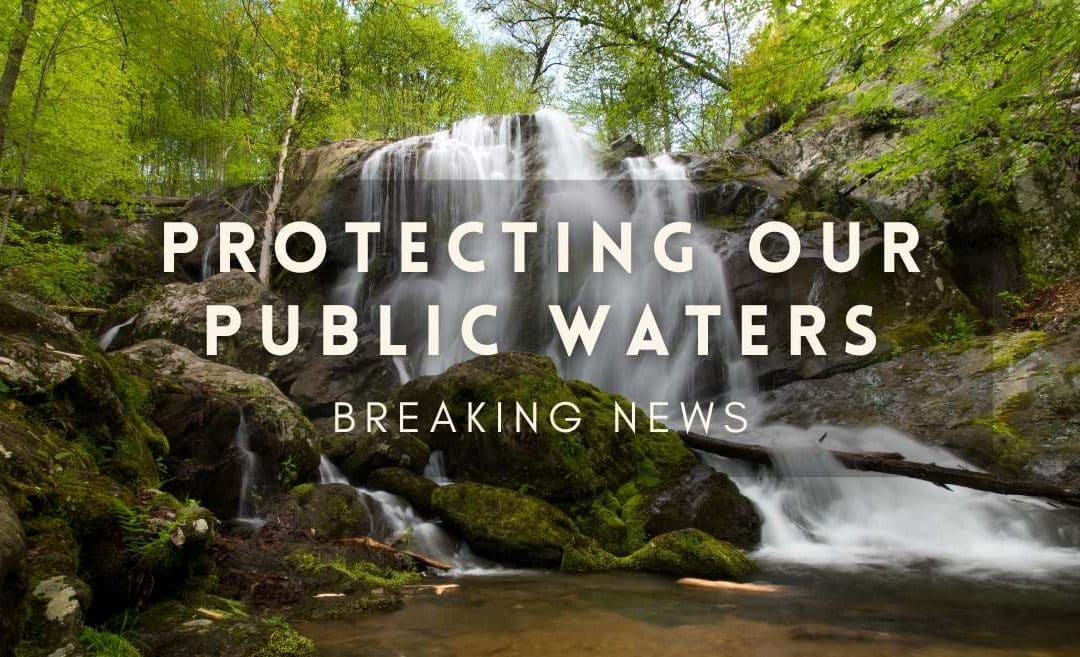
Post-Helene Watershed Report: Green Riverkeeper
Post-Helene Watershed Report: Green Riverkeeper
I was getting ready to board a flight to our Global Waterkeeper Alliance Conference the Wednesday before Hurricane Helene hit, and I had a gut feeling that the home I would return to the following Sunday was going to be different. I had no idea what that would look like, but the Tuesday night before my flight, we already had five inches of rain in Saluda, and I knew it wasn’t going to stop. Watching Helene build from the outside was an entirely different traumatic experience. Seeing the catastrophic devastation surrounding our homes, rivers, and communities was heartbreaking and it felt like we were a million miles away with no way to help.
On Facebook, there was a local kayaking community page that I follow and multiple efforts were starting to unfold to get to those affected in the Green River Cove (the Lower Green) the Saturday after the storm. Houses were wiped off the map, folks were stranded with no way out, and there was no way to tell if lives had been taken by the floods that occurred Friday morning in the Gorge. I kept commenting in the group “You all can meet at my office in Saluda to make a plan, and when I get home Sunday, we can use the office for whatever is needed!” A good friend, Chris Wing from H20 Dreams, who also has a business on the Green River, reached out and said, “I have donation money and supplies…” and my response was, “I have the office space and parking.” We both asked, “We wanna do this?” (not knowing what “this” was)” and of course, our answer to each other was YES!
That Sunday, another Riverkeeper and I flew into Greenville/Spartanburg airport as our flight into Asheville was canceled. A friend picked us up with a truck loaded full of supplies and we headed towards Saluda.
The next week was a blur filled with love, support, community, and a lot of heroes. Out of my office, we ran a supply and donation relief effort for the local community, and we sent recon search and rescue teams out to affected areas where folks couldn’t be reached. We sent supplies, worked with local fire departments, alerted the correct personnel if there needed to be evacs, and set up a drive-through line for the community to come and gather supplies. It started with the kayaking community SHOWING UP Y’ALL and morphed into an all-hands-on-deck effort from the local community and beyond to help folks in WNC.
Fast forward to now and we have hired contractors to get the cars, houses, roofs, RVs, trailers, and more out of the river (HUGE thanks to Jake Jarvis from Precision Grading for all his hard work and huge heart to help WNC right now). We’ve tested numerous wells that were flooded for traces of E. coli, we’ve sampled the Lower Green for bacteria and will be testing for chemicals in the coming weeks, and we’ve raised funds for cleanup efforts and river restoration for the Green and Pacolet rivers!
As we move forward, we grieve the loss of our rivers and communities, but we feel immense gratitude to the community for their outpouring of love and support over the past month. We will be doing this restoration and resilience work for years to come, and I look forward to welcoming you all to assist in those efforts. We can’t do it without you.
Look for updates on our social media pages: Green Riverkeeper Instagram + Facebook.
-Green Riverkeeper Erica Shanks






